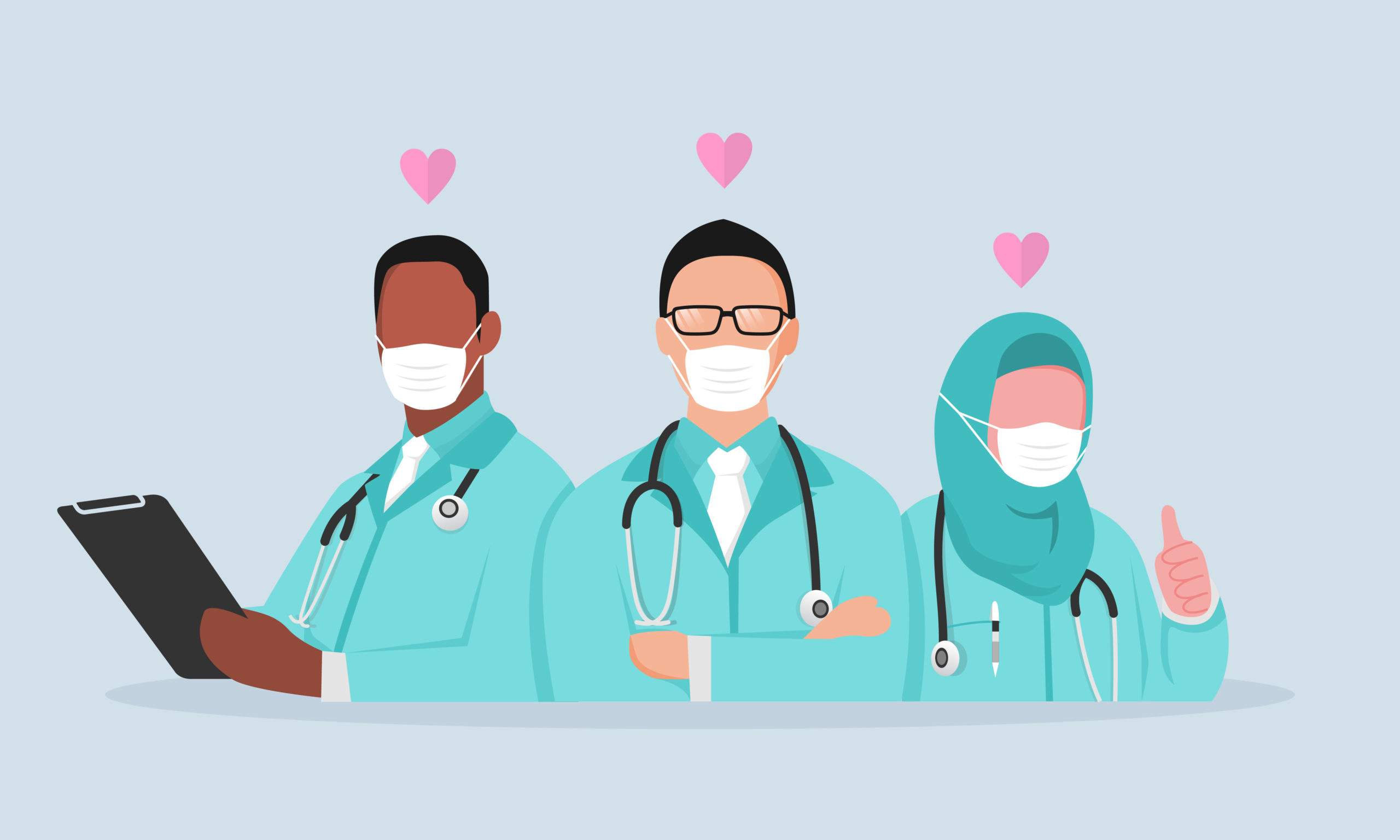After lockdowns throughout the darkest months of winter, there is a sense that we are collectively losing our minds. From brain fog and forgetting simple things to heightened emotions and general sluggishness, anecdotes from friends and family about the many ways they’re feeling “off” are piling up. They may make amusing fodder for group chats and internet memes, but these mind blips and slips signal a larger mental health concern—months of isolation have significantly altered our brains.
I find myself cycling through what seem to be the stages of grief —denial, anger, guilt, depression—without ever getting to acceptance.
“I feel irritated at the behavior of others to an unhealthy degree these days,” says Jason, who has been working remotely for the past year with his wife and young daughter at home. He requested his last name not be used due to the nature of his work. It can be small things like people not wearing masks or someone jogging close to me on a sidewalk. Or larger issues, like the failure of politicians and governments to rise to this crisis. I find myself cycling through what seem to be the stages of grief —denial, anger, guilt, depression—without ever getting to acceptance.”
Some have adapted by shutting down emotionally. “I’m a very talkative, emotional person,” says Vivian Choi, who juggles full-time remote work while caring for her two young sons at home. “I’m not engaging as much in my group chats I normally would. [I’m not] being as emotionally available or opening up as much.”
For others, deviations from routine events can detonate emotional bombs. “I had to go to a doctor’s office, and they didn’t have specific forms [I needed]. I could feel myself bubbling up,” says Laura Rocoski, who has also worked remotely throughout the pandemic.” I was super emotional. Pre-pandemic, I would have been able to manage it without getting flustered or upset.”
What the Pandemic Is Doing to Our Brains
These changes are not just a product of our imaginations. “It’s all real,” says Chair of the Department of Neuroscience at Carleton University Dr. Kim Hellemans, who studies the effects of stress on the brain. “Lack of social interaction, more work happening, always on the screen. All of these things are contributing to a loss of your normal cognitive functioning. We’re all overwhelmed.”
An abundance of research has shown that the stress of isolation and loneliness for social creatures such as humans has a damaging effect on our grey matter. Mice that were isolated for 30 days showed smaller nerve cells in certain parts of the brain, including the hippocampus, which plays an important role in learning and memory, the somatosensory cortex, which processes sensory information and the motor cortex, which is responsible for voluntary movement. Studies of rodents have shown that long-term social isolation is associated with behavioral abnormalities that read much like a list of anecdotal global pandemic effects: impaired concentration and memory, depression, difficulty making decisions.
Daily routines that once included a broad spectrum of interactions with an ever-changing cast of people set in a variety of different environments, from home and workspaces to shops and streets, have shrunk to the size of a computer screen. “Everything’s happening in one context,” says Dr. Hellemans. “So many of our tasks are greater now. Sometimes it takes me five emails over three weeks to resolve an issue that normally would take five minutes in a hallway conversation. It’s more draining because we’re existing in a unitary environment.”
Processing the lion’s share of these changes are the prefrontal cortex, which is responsible for working memory and paying attention, and the anterior cingulate cortex, which links to the limbic system and the prefrontal cortex, and is responsible for regulating emotions and decision-making. “When [these areas of the brain] become overwhelmed, [we] become forgetful and more irritable,” says Dr. Hellemans. “We’re also less able to regulate our emotions and we’re more likely to be reactive. For folks that have mental health vulnerabilities it can unlock these things or unmask them in some cases, or exacerbate them in others.”
How to Help Clear Pandemic Brain Fog
After a year of brain fog, forgetting things, surging emotions and depression, will we ever regain what we’ve lost? How can we get our mojo back? “The beautiful thing about us as a species is that we are highly adaptive and innovative,” says Dr. Hellemans. “The brain is very plastic. It has a lot of processes built into it in order to continue to adapt to new environments.”
That’s good news, however these changes aren’t going to disappear with a snap of the fingers and a maskless night out conversing with strangers. Regaining energy and a sense of normalcy will take time. Just as our brains worked to adjust to our current state of life, they must go through the same process to adjust to the post-COVID reality. “There’s going to be a reverse culture shock when we enter society,” says Dr. Hellemans. “We’re all going to get tired. It’s like a re-entry to face-to-face conversation.” This adjustment will look different for everyone. “It’ll exist on a continuum from people who bounce back right away to [others who may need] more support, medicine and therapy,” she says.
Taking stock of the habits that have gotten you through the pandemic is the first step in navigating the coming challenges of re-opening, says Dr. Hellemans. Whether it’s long walks around the neighborhood, creating boundaries around work or even avoiding emotionally triggering movies, the workarounds we’ve put in place to protect ourselves and manage our emotions over the past year will be habits that can help sustain us through this new round of changes. “What are the habits you would like to maintain? Which should go by the wayside? It’s about building back better,” she says.
Going from a year of PJs and couch-surfing to swing-dancing in heels until 4 in the morning may be a fun fantasy to entertain as restrictions ease. While our minds may envision an exciting post-COVID life of parties, travel and face-to-face conversation, our bodies might need time to catch up. “What the brain wants and what the body wants might be completely two different things,” says Dr. Hellemans. “Remember that exhaustion and stress suppress the immune system.” She advises paying attention to what your body is telling you and rest when you need. Don’t rush re-integrating and risk burning yourself out even more.
While it may take longer than many of us are hoping for, our collective mojo will eventually return. “As a society, we’ve pivoted and adjusted many times in the last year,” says Dr. Hellemans. “Use these opportunities to win next time you have to adjust again.”
Try a Daily Mindful Check-In Practice
As you prepare for post-COVID life, try incorporating this practice from Bob Stahl into your daily routine. You can use it as a way to check in with how you’re adjusting to any shifts in your life. As best you can, do this practice in a quiet space where you won’t be disturbed or distracted. This might mean closing the door to your home office, turning off your phone, or pausing in your car in the driveway when you get home. You can do this practice either lying down or sitting. If sitting, aim for a posture that’s supported, balanced, and upright but not rigid. Close your eyes if you’re comfortable doing so, but it’s also fine to simply lower and soften your gaze.
Appreciate your time. Take a moment to thank yourself for the time and space to do this practice. Amidst daily demands, it’s rare for people to consciously and deliberately set aside even a few minutes to just see how they are. Most people are more apt to do this for a close friend, their children, or their partner. Turning this generosity toward yourself warrants some acknowledgment and recognition. With this small gesture, you’re exercising a shift: resisting the tendency to just move along and instead making time and space to take care of yourself. You’re setting and honoring an intention to see what’s really within you.
Kindly attend to the moment. Now bring your full attention to the experiences of your body, your mind, and any thoughts or emotions that you’re aware of, just as they are. There’s no need to judge, analyze, evaluate, or assess your experience. The focus here is simply being with yourself fully, in the present moment and letting it all be. If a tendency to judge or figure things out arises, simply notice and acknowledge that, then gently return to the awareness of how you are. Continue directing your attention to the experiences of your body, mind, and emotions for about three minutes.
Acknowledge yourself. As your practice comes to a close, once again acknowledge your willingness to show up and be present, knowing that, in this way, you’re contributing to your wholeness and well-being.
READ MORE
P.A.C.E. Yourself: A Practice Honoring Healthcare Workers
We are all safer because of the work of healthcare providers. With deep gratitude, Dr. Reena Kotecha invites those working on the frontlines to take a moment to prioritize self-care.
Read More
Keeping a Cool Head and Warm Heart in Challenging Times
Cooling the fires of reactivity by cultivating equanimity so we can find steadier ground on which we can stand to meet the challenges of the day.
Read More
Allow the Storm to Pass: A Guided Meditation for Resilience
In this practice, Scott Rogers guides us to take the role of observer to difficult emotions, so that we can more easily create the space we need to let them go.
Read More









